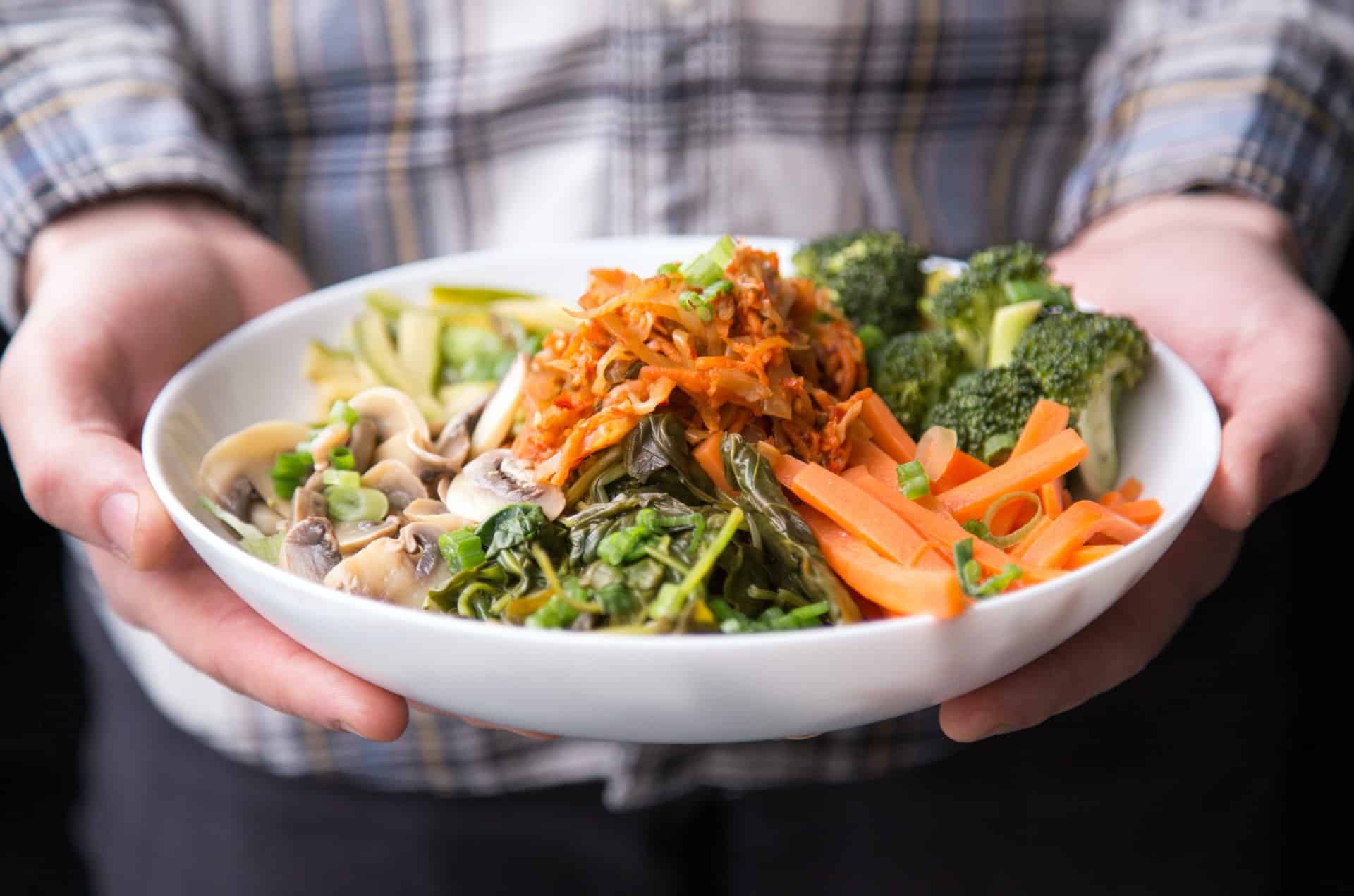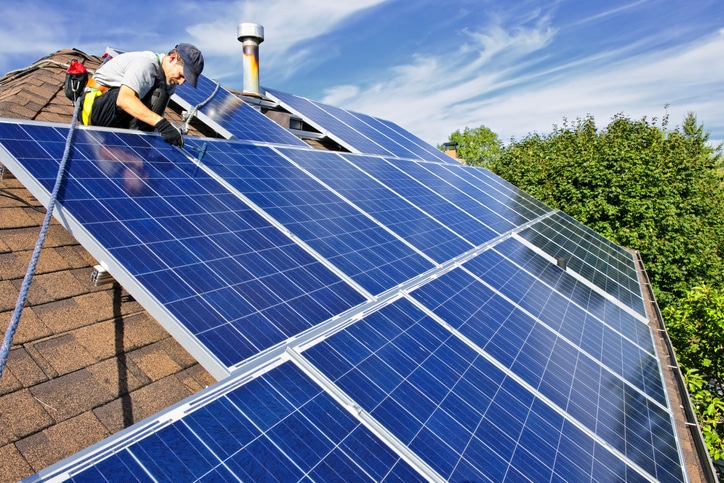
How to Make the Most of a Vegan Diet

Adopting a vegan (or vegetarian) diet seems like a logical step for anyone wanting to minimize their environmental impact and be a better dweller of Planet Earth. After all, research shows food from animal sources makes for one of the main contributors to carbon emissions, freshwater use, water pollution, and air pollution.
However, while a vegan diet can help people be more eco-friendly, it’s not always the green solution it’s taken to be. It can come with several pitfalls, complications, and the ever-persistent question of whether you’ve taken everything into consideration when calculating the carbon footprint of your dietary choices.
The easy way out would be just to say going vegan does just as much damage to the planet as being an omnivore, but that’s not entirely the case. The truth is, a plant-based diet can not only be a great way to take care of the environment, but it can also give you the means and incentive to take better care of your health.
So, if you’re on the fence about going plant-based, or you just need help making more ecologically-conscious food choices, here is how to make the most of a vegan diet without harming yourself or the environment.
The Hidden Pitfalls of the Vegan Diet
For most environmentally-conscious people, the idea of eating a plant-based diet seems like the perfect solution for tackling climate change by adapting personal habits. After all, it doesn’t necessitate as big of a change as, say, a zero-waste lifestyle. Yet, it offers the potential for exponentially reducing your carbon footprint.
Nonetheless, there are a few inherent problems with eating plant-based.
Yes, going vegan helps us address the problem of factory farming. But, it still relies on protein replacements and cereals, which even the most enthusiastic gardeners can’t grow at home.
Moreover, even if we choose to only eat organic, locally-grown foods, there are environmental factors we have no way of calculating at home.
For example, a research study from 2019 found that in the UK, importing vegetables from unheated greenhouses in Europe had a lower environmental impact than UK vegetables grown in heated greenhouses.
So, if a person chose to consume asparagus just because it’s vegan, they were actually contributing to more greenhouse gas emissions than if they had eaten a serving of poultry.
Then, of course, there are the wasteful habits that tend to creep in. Not just for vegans, but anyone trying to live a sustainable life.
For some people, it’s having their morning cup of java from a convenient coffee pod. For others, it’s imported strawberries or watermelons as dessert. And let’s not forget about the fact plant-based dairy substitutes like almond milk take their toll on the environment due to water consumption and pesticide use.
But despite all of these risks involved with going vegan, choosing to omit animal source foods from your diet makes for the perfect first step towards leading a green lifestyle. A vegan diet also causes the least amount of harm to animals, so is extremely beneficial in this regard as well.
When you combine veganism with a few other tricks, you not only reap the multiple health benefits but, rest assured, you’re doing your part in helping preserve this beautiful planet we call home.
Take up Gardening to Make Your Vegan Diet More Green
The obvious solution to making the most of a vegan diet, environmentally-speaking, would be to start cultivating your own foods.
At-home gardening, although daunting to most beginners, doesn’t have to be complicated. Nor does it have to take up too much time, space, or effort. Plus, if you make sure to plant native species, you can get away with far less fertilizer and water. You might even be able to avoid pesticides altogether and opt for natural solutions instead.
To make gardening as environmentally friendly as possible, make sure to collect rainwater to irrigate your plants (and curb your water waste). Then use the compost from your kitchen scraps to enrich your soil.
Great vegetables to grow in your home include lettuce, tomatoes, broccoli, and zucchini. If, however, you don’t have a garden, you can always opt for cultures that require very little space, like cherry tomatoes, garlic, and herbs such as basil, parsley, or rosemary. You can grow all of these on your windowsill.
Buy Less Food So You Can Stop Waste
Another super-easy method to make your vegan (or omnivore) diet more biofriendly is to buy less.
According to the FDA, between 30% and 40% of all grown food goes to waste every year. This means almost half of all grown produce ends up going to landfills and releasing methane, which accounts for about 10% of all greenhouse gas emissions.
But, if you start buying (and throwing away) less, you won’t just be lowering your personal environmental impact. You’ll also lower the demand for new produce to be grown, making a small contribution to the greener future of our planet.
When you’re ready to take things even further by making more eco-friendly purchasing decisions, it’s not a bad idea to start using food waste apps like Too Good to Go and Food Rescue US. Furthermore, try shopping from services like Imperfect Foods and Hungry Harvest, which stop imperfect produce from being discarded just because of its looks.
Prioritize Your Health When Making Dietary Choices
Finally, remember that even though some lifestyle choices, such as the foods we eat, can help us contribute to a greener future, these should never take priority over our health. If for no other reason but for the fact healthy people require less medical care, thus contributing to less waste through the healthcare system.
So, as you consider ways to get more out of a vegan diet, remember to take into account how your chosen foods affect your health.
For example, dietary lectins (found in legumes) have been linked to leaky gut syndrome. Soy products can be connected with the disruption of thyroid function. And research has shown that vegans and vegetarians stand a higher chance of iron and vitamin B12 deficiency.
Fortunately, all of these risks are easily avoidable. But, as you transition to a plant-based diet, remember to check in with your body. Be mindful about how you feel, and keep up with your regular medical checkups.
After all, finding the perfect diet for your system will take time. But once you’ve struck a balance between what’s good for you and what’s beneficial to the environment, you can rest easier, knowing you’re doing your absolute best to lead a sustainable, healthy life.
The Ball Is in Your Court
Whether you’ve just recently decided to join the plant-based revolution, or you’re looking for ways to make your vegan diet more eco-friendly, it’s important you commend yourself. What you’re doing is a noble thing that’s sure to contribute to a more biofriendly future.
But remember, just going vegan isn’t enough to turn your lifestyle 100% green. At least not in itself. So, as you go about your day, stop and think about the greater impact of your dietary choices and look for ways to always do better. This might mean buying from a local farmer for some and less indulgence in coffee or chocolate for others. For another group, it might even mean learning how to buy less overall.
But, as long as you stay committed to lifelong learning and dedicate yourself to doing your best, you’re on the right path. Even if you encounter the occasional hiccup along the way.



Olivia
Insufficient intake of vitamins causes significant damage to health, increases child mortality, adversely affects the growth and development of children, reduces physical and mental performance, resistance to various diseases.